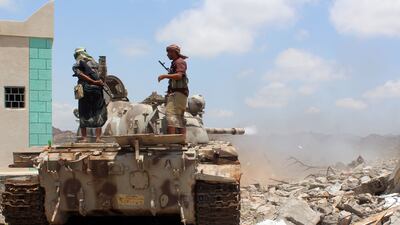Among the most extraordinary aspects to the leadership in Tehran is how tone-deaf they are diplomatically. As Iran’s president was preparing to visit Oman and Kuwait – Hassan Rouhani has now returned home after his flying visit to the Gulf – his deputy chief of staff said the Gulf should “take advantage of the good opportunity” in case it “passes like a cloud”.
Such language would be understandable from a major country such as China. But from Iran? By yardstick every major milestone – international relations, strong alliances, development – Iran lags behind the countries of the Gulf. Indeed, one would hope that Mr Rouhani’s visit showed him what life could be like on the other side of the Arabian Gulf if his country stopped playing a detrimental role and started playing a constructive one.
This is why, again and again, the Gulf states have sought dialogue and diplomacy with Tehran. It was the Gulf, after all, that initiated this meeting – Kuwait’s foreign minister delivered a message of dialogue in January on behalf of the region – not Tehran. It is because we recognise how badly ordinary Iranians and Arabs have been affected by the current policies of Tehran.
Millions of people, from Iranians to Iraqis to Yemenis to Syrians have been harmed by the wars that Iran has provoked. All of this is unnecessary. But in order for the Iranian government to truly seek better ties with the Gulf states, it must first halt its provocative policies. It cannot come to the region and talk peace, while its military advisers support Bashar Al Assad and its sectarian policies find their way to Baghdad and weapons are funneled to the Houthis in Yemen. The two are linked.
Neither can this be business as usual. In a separate development, the Houthi rebels, who occupy Sanaa, were seeking to cap imports and affect the monetary policy of Yemen. Leaving aside how this will aggravate a food crisis and affect ordinary Yemenis, it also shows how the rebels are seeking to normalise what remains a state of war. This seems to be Tehran’s hope: that the extreme groups it supports in Arab countries will be able to find roles affect national policy, and Tehran’s role will be forgotten. But it cannot be. There is only one path to better relations with the Gulf states and that is the path of genuine diplomacy. Provocation and politics cannot be mixed.

